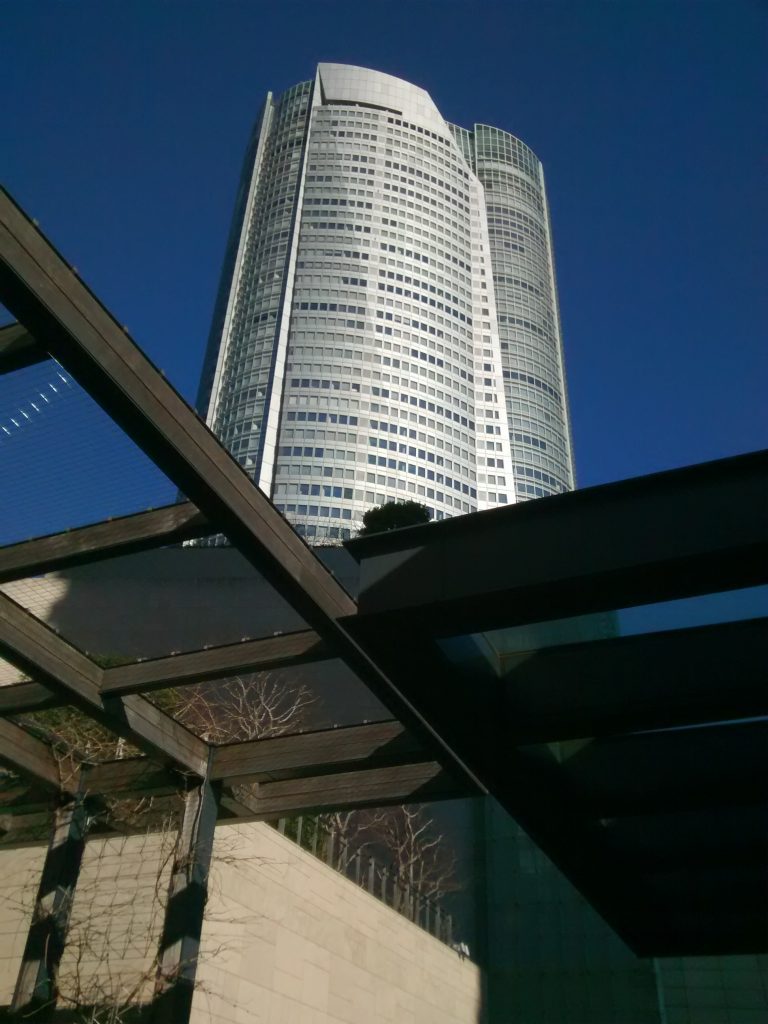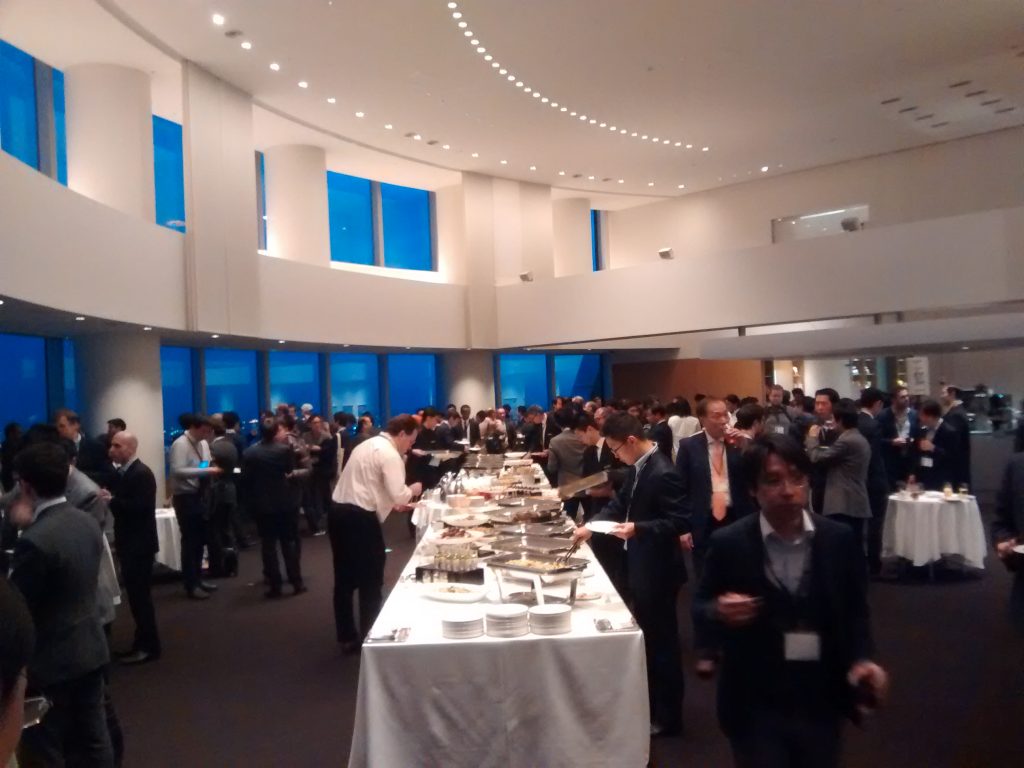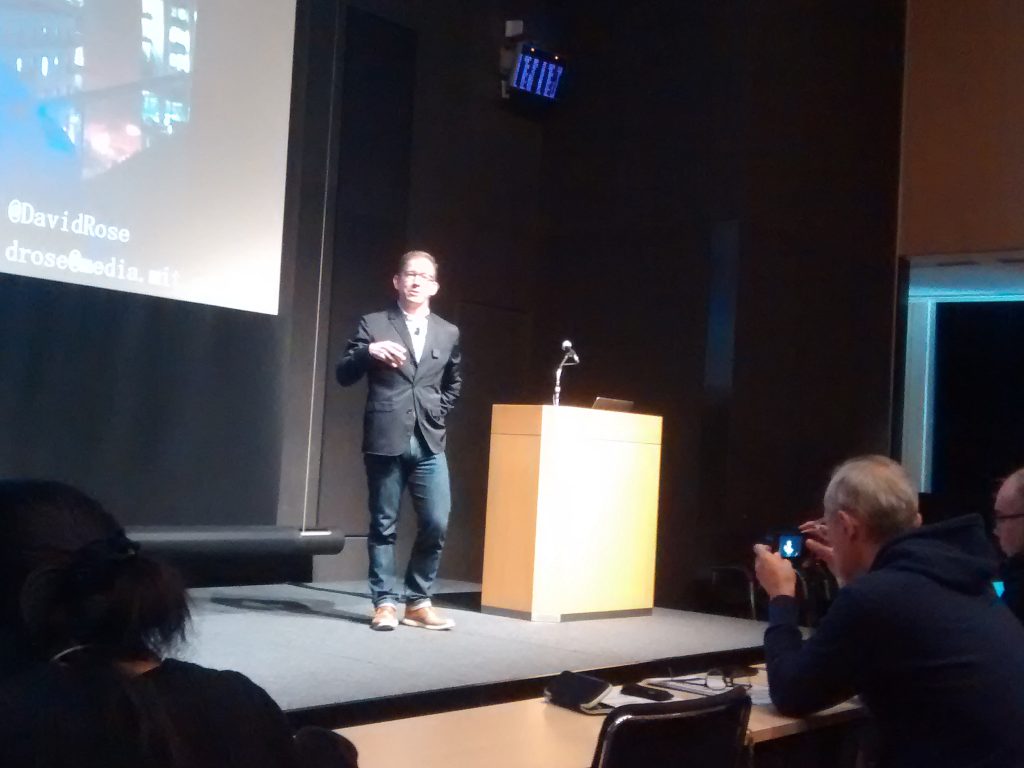The biggest problem with renewable energy is intermittency – to generate solar power you need the sun to shine; to generate wind power you need the wind to blow. You can easily estimate how much power will be generated on average per month or per year, but that is not much help when you need to supply power to consumers and meet their changing needs on a minute by minute basis. In order to minimise our dependence on fossil fuels, we need to better predict both renewable power generation and consumer power use with the goal of using more renewable energy with fewer resources.
Articles such as How Big Data Changes the Economics of Renewable Energy from the Wall Street Journal explain how big data analytics (already depended on by the oil industry) is now being used in the renewable energy sector to integrate more clean sources of power into the mix.
Big Data Analytics Tokyo
In February 2017, REUK attended the Big Data Analytics Tokyo conference. Focused primarily on big data analytics and data science for the business world, the presentations looked at the new data-driven reality disrupting all markets including of course the renewable energy sector.
The two day conference was held at Roppongi AcademyHills on the 49th floor of Tokyo Mori Tower – at 238m tall and with 54 floors, the 6th tallest building in Tokyo offering incredible panoramic views of Tokyo and Mount Fuji.
The conference was attended by a pretty much even 50/50 split of data analytics practitioners, machine learning experts, and students and of business people looking at how data analytics and artificial intelligence (AI) can help (or will force change) to their existing businesses in the future.
The keynote and other speakers covered big data analytics, predictive analytics, data visualisation, machine learning, and AI, but all were focused on real world practical applications of these technologies making this a useful conference for beginners and experts alike. They also covered entrepreneurship with a slant toward the Japanese market and of course with regards to data analytics.
On the evening of the first day, a networking reception was hosted by AI Business which gave the opportunity to meet and talk to most of the speakers from the conference as well as the other attendees. There was a fascinating mix of people from a wide range of different disciplines including renewable energy, home automation, and remote sensor monitoring, all related closely to the work of REUK.co.uk. The speakers from the conference were very accessible and open to answering questions whether relating to their talks or just about the field in which they worked.
Here is a link to the official website of Big Data Analytics Tokyo where you can download all of the conference slides from the many presentations.
Overall the conference was very well organised with an eclectic mix of excellent and well informed speakers.
Additional Information
Above we have the link to the slides from all speakers at the conference. However, for anyone interested in applying data analytics to their business, or on pursuing a career in data analytics and related fields, here are a few titbits of the recurring themes covered by the conference speakers.
- 80% of the work is data pre-processing – i.e. just getting clean data which is ready to be analysed. Preparing the data is often the hardest problem, and it is difficult to automate. (see Paxata for data prep tools).
- Black box predictive and analytical solutions are no longer wanted (think of the 2008 financial crisis). People need to know what is happening with their data, and therefore what they want is a tool box.
- All businesses can benefit from data science and the time to implement these technologies is now to get a competitive advantage or even just to keep up or avoid being overtaken.
- Businesses run on information not data. However…
- Insights from data (information) are not actually very helpful. What you need is to know what to do today to get the results you want tomorrow – change the way you do business with prescriptive analytics – e.g. working out which customers to call and how small of a discount to offer them to prevent them from leaving to a competitor. (RapidMiner.com)
- If you are interested in this field, learn and use R, Python, and Scala. Python is the most used – playing around with Python on a Raspberry Pi making IoT devices and collecting and processing data from simple sensors is a good start.
- With current technology you only fully automate a process/situation which a human can grasp in under 1 second.
- Internet of Things (IoT) devices are currently and will continue to be the biggest growth area in internet connected devices for the foreseeable future.



